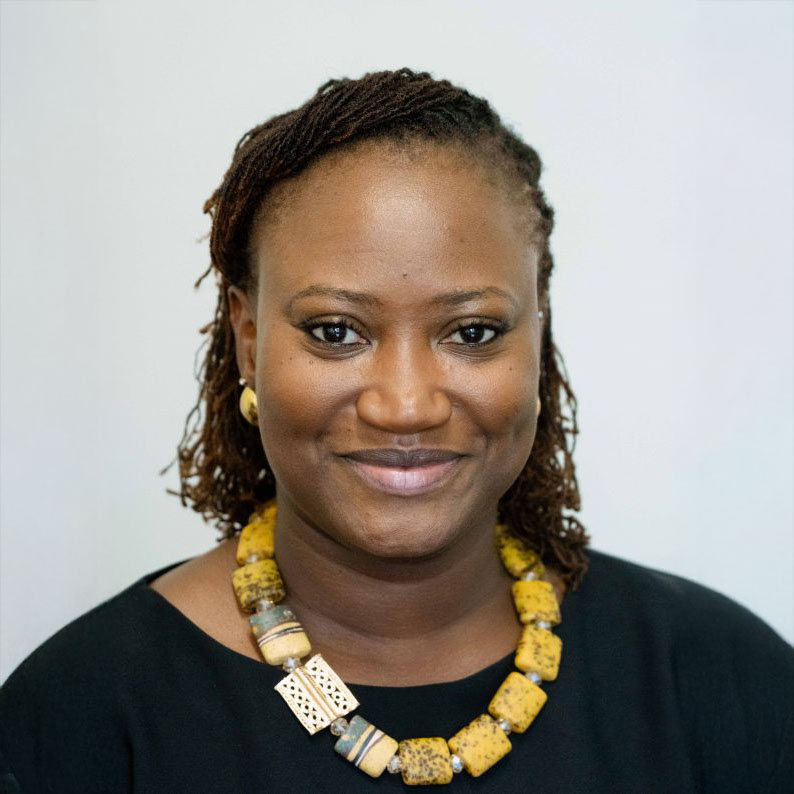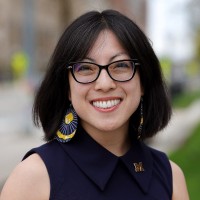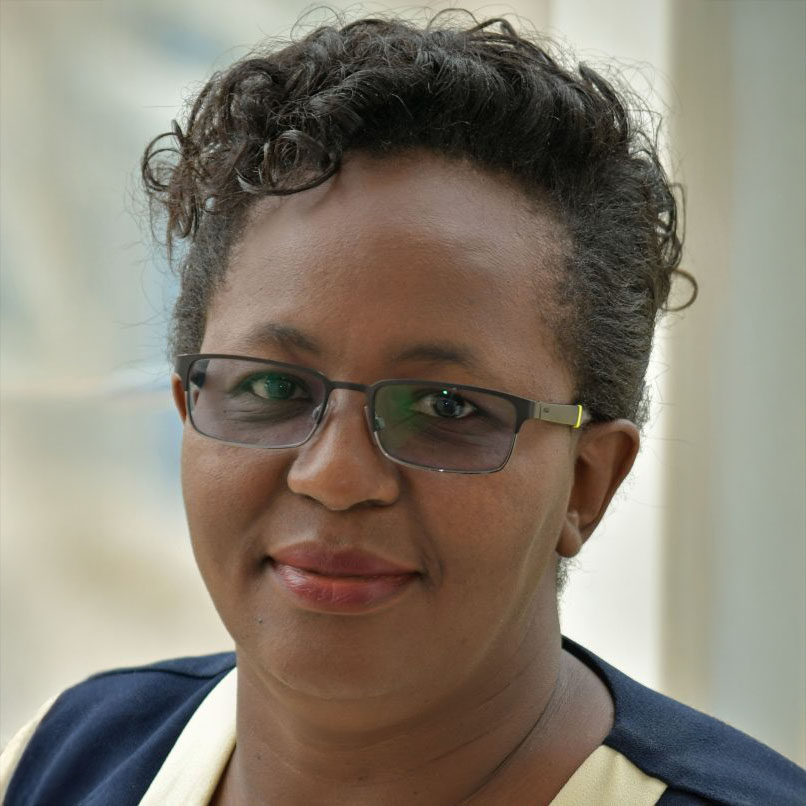Finalist Judges

Rose A. Dodd
Rose A. Dodd is a strategic leader mobilizing Africa’s higher education sector at a critical moment when the continent’s youth population is rapidly growing, yet tertiary enrollment remains the lowest in the world. As Executive Director of The Education Collaborative, a pan-African initiative launched by Ashesi University in 2017, Rose leads a peer-driven network that has engaged over 400 institutions across the continent. Under her leadership, the Collaborative is driving transformation in teaching, institutional practices, and graduate outcomes—impacting hundreds of thousands of students, with a goal to reach one million by 2030. With deep expertise in strategy and stakeholder alignment, she develops scalable models for institutional collaboration and system-wide improvement. Rose is driven by a commitment to social innovation and is shaping the future of African higher education by building the systems, networks, and models that enable institutions to lead transformative change at scale.

Grace Hsia Haberl
Grace Hsia Haberl, Ms.E. is a Lecturer II and Programs Co-Lead at the Center for Entrepreneurship in the University of Michigan College of Engineering; program director of the Advanced Materials and Manufacturing Program (AMMP) Accelerator at the MTEC SmartZone; curriculum director at Femology, and the CEO and co-founder at Warmilu, a non-electric infant warming incubator manufacturing company. Today, Warmilu has warmed over 105,820 babies born to 117 hospitals based in 25 countries with customers including VIA Global Health, KEMRI, Rotary Club, Doctors Without Borders, and more with US-patented and FDA-registered warming technology. Over her 14-year career, she has raised over $7M, managed over $100M in vehicle assets at UPS, taught over 1374 students, and coached over 283 companies. She is the Chair Emerita for the University of Michigan College of Engineering Alumni Board (MEAB) and an experienced, award-winning entrepreneur and entrepreneurial education curriculum designer. View her faculty biography here.

Gautam Kaul
Gautam Kaul is a Professor of Finance at the University of Michigan’s Ross School of Business, holds a master’s in economics from the Delhi School of Economics, and PhDs from the Indian Institute of Management, Ahmedabad and the University of Chicago’s Booth School of Business. Gautam has published extensively in the top journals in Finance on topics covering a wide spectrum and has taught at the undergraduate, MBA, Global MBA, EMBA and PhD levels, as well as executives all over the world. He has received multiple awards and is the founding Managing Director of three programs created in partnership with graduate students: the Social Venture Fund (SVF) housed in the Samuel Zell and Robert H. Lurie Institute of Entrepreneurial Studies, the International Investment Fund (IIF) in partnership with the William Davidson Institute (WDI) and the Michigan Climate Venture (MCV) in partnership with the Erb Institute and the School for Environment & Sustainability (SEAS).

Ruth KIRAKA
Ruth N. KIRAKA is Associate Professor of Management (Strategy and Entrepreneurship) at Strathmore University, Kenya. She is a researcher, trainer, consultant and certified professional mentor and coach. She has also been involved as a lead researcher on projects about gender equality, women’s economic empowerment, and the development of pastoral markets in Kenya. Her research interests include enterprise development, gender equity, women in leadership, women and youth entrepreneurship and empowerment and management education, and internationalisation, governance and administration in higher education. Ruth currently chairs the Entrepreneurship and Innovation Hub at Strathmore Business School, as well as the Annual SME Conference, currently in its 13th year.

John Lafkas
John Lafkas is Senior Editor, Cases and Pedagogy at Harvard Business Impact, formerly Harvard Business Publishing. He has co-authored several cases and was previously an instructor at The Wharton School at the University of Pennsylvania, where he received his M.A. in Management.

Chukwuemeka Okeke
Chukwuemeka Okeke is Senior Programmes Coordinator at LEAP Africa, where he leads entrepreneurship and social innovation portfolios, including the Social Innovators’ Programme & Awards (SIPA). A passionate advocate for youth-led solutions, he designs flagship programmes that surface and scale young social enterprises across Africa. His approach blends rigorous programme design, strategic partnerships, and evidence-led learning to move early-growth ventures into investor-ready pipelines. Under his leadership, SIPA’s reach is expanding, cross-sector alliances are deepening, and more founders are accessing opportunities with finance, mentorship, and markets. Chukwuemeka brings warm, practical pan-African insight on scaling impact, shaping policy, and unlocking investment for inclusive innovation. He holds an MSc in International Business Management from the University of Sunderland.

Nneka Okekearu
Dr. Nneka Okekearu is the Director of the Enterprise Development Centre (EDC) of Pan-Atlantic University in Nigeria. She leads initiatives that strengthen entrepreneurship education, expand market access for small businesses, and advance women’s economic empowerment across Africa. With over two decades of experience in enterprise development and leadership training, she has worked with global partners such as the British Council, World Bank, and Mastercard Foundation to design impactful programs that drive inclusive growth. Nneka serves on several boards, including VFD Group Plc and the Yemisi Shyllon Museum of Art, and is a member of the Institute of Directors and the Society for Corporate Governance. A passionate advocate for sustainability, gender equity, and youth inclusion, she brings her extensive experience and insight to the judging panel for this competition, supporting excellence and innovation in global case writing.
Judging Criteria
- Topic/Content
- The protagonist and case dilemma is clearly focused on entrepreneurial ventures and decisions, related to one or more emerging markets.
- Teaching/Learning Value
- Engages students into an active learning mode.
- Provides students opportunities to analyze/solve relevant entrepreneurial business issues in one or more emerging markets.
- Contains elements allowing students to exercise higher-order, complex thinking. Requires more than just comprehension and memory.
- Intro/Overview
- Sparks interest and curiosity of the reader, drawing them into the narrative.
- Clearly introduces the protagonist and organization/company.
- Clearly identifies the dilemma, its time frame, & its tension/urgency.
- Protagonist/Organization
- Protagonist and organization clearly identified in the case introduction.
- There are appropriate details about the protagonist, including their role in the organization, career history, etc.
- There are appropriate details about the organization or company such as mission, revenue, history, P&L statements, culture, geo locations, competitors, etc.
- Adequate context is provided for both the protagonist and organization, relative to the concept of the case.
- Dilemma
- Dilemma and time frame clearly identified in the case introduction, along with its urgency.
- Dilemma can realistically be solved by the protagonist.
- Dilemma has applicability beyond the immediate situation described in the case.
- Case specifies at least two questions that students need to address to solve the dilemma.
- Dilemma challenges students to analyze the situation and develop multiple, integrative solutions.
- Writing/Citations & Endnotes
- Documents are free from structural, grammatical, spelling, and typographical errors.
- Complete citations and endnotes are included for any quoted material such as facts, figures, and other data.
- Teaching Note
- Includes clear, measurable teaching objectives.
- Pedagogy identifies case audience, business disciplines, and prerequisite knowledge or courses.
- Assignment questions can be answered based on information provided in the case.
- Includes comprehensive answers to assignment questions, along with appropriate analysis.
- Includes explanations/sources for conceptual frameworks and/or business models students should use in their case analysis.
- Includes a teaching plan that suggests how to allocate time in-class for the case discussion.
Review and Judging Process
- The first round review will be double-blind, i.e., the reviewers will not know the identity of the submitting author(s), and vice versa.
- Finalist judging will be reverse single-blind, i.e., finalist judges will not know the identity of the submitting author(s), but authors will know the identity of the finalist judges, as they are featured above.
Sponsors
Thank you for the support of our sponsors. Learn more about them here.

Contact
For all inquiries, please contact us at info@wdi-publishing.com.
